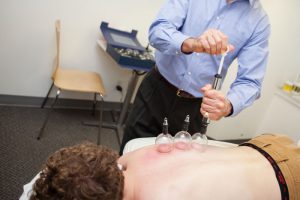Think of all of the people who help improve and maintain your health. You may have a primary care physician. But you could also have a nutritionist. And a psychiatrist or psychotherapist. And a personal trainer. And another specialist, perhaps. Each professional in your health care network has a particular background, set of skills, and expertise. When combined together, you receive the best of all worlds.
Holistic medicine isn’t trying to replace your doctor or your routine. It can be integrated into your existing health care routine for a variety of conditions.
For example, your doctor may prescribe medication to reduce the frequency of migraines, while your acupuncturist can help reduce the pain or stop a migraine dead in its tracks. Or your surgeon might fix a broken bone, while your physical therapist helps with mobility and your acupuncturist helps with post-surgery pain and recovery.
Start with the whole picture of your health
It’s important to understand all aspects of a patient’s healthcare network. That’s why when I see a patient for the first time, I make a point to learn their history, including treatments currently being received or prior treatments, medications being taken, and health goals that a patient is working towards.
With that information, I can better understand which services will serve you best. In so doing, I’ll focus on how to build the existing work you’ve received, offer new perspectives to treatment and collaborate, as needed, with your other health care practitioners.
Talk about your treatment plan
Everyone in your healthcare network is working for you. That’s why communicating about the treatments that you are receiving is important. But communication or collaboration can be difficult when not everyone is speaking the same language.
If you are trying to talk with your doctor about acupuncture, you might need to phrase the treatment in Western medical terms. But this can be hard to explain.
That’s why I’m happy to talk with your doctor personally to explain what the treatment is from a biomedical point of view. Because the more that everybody knows, the more that everybody can help you. That’s why integrated, holistic health care can work so well—it’s a patient-centered team approach.



